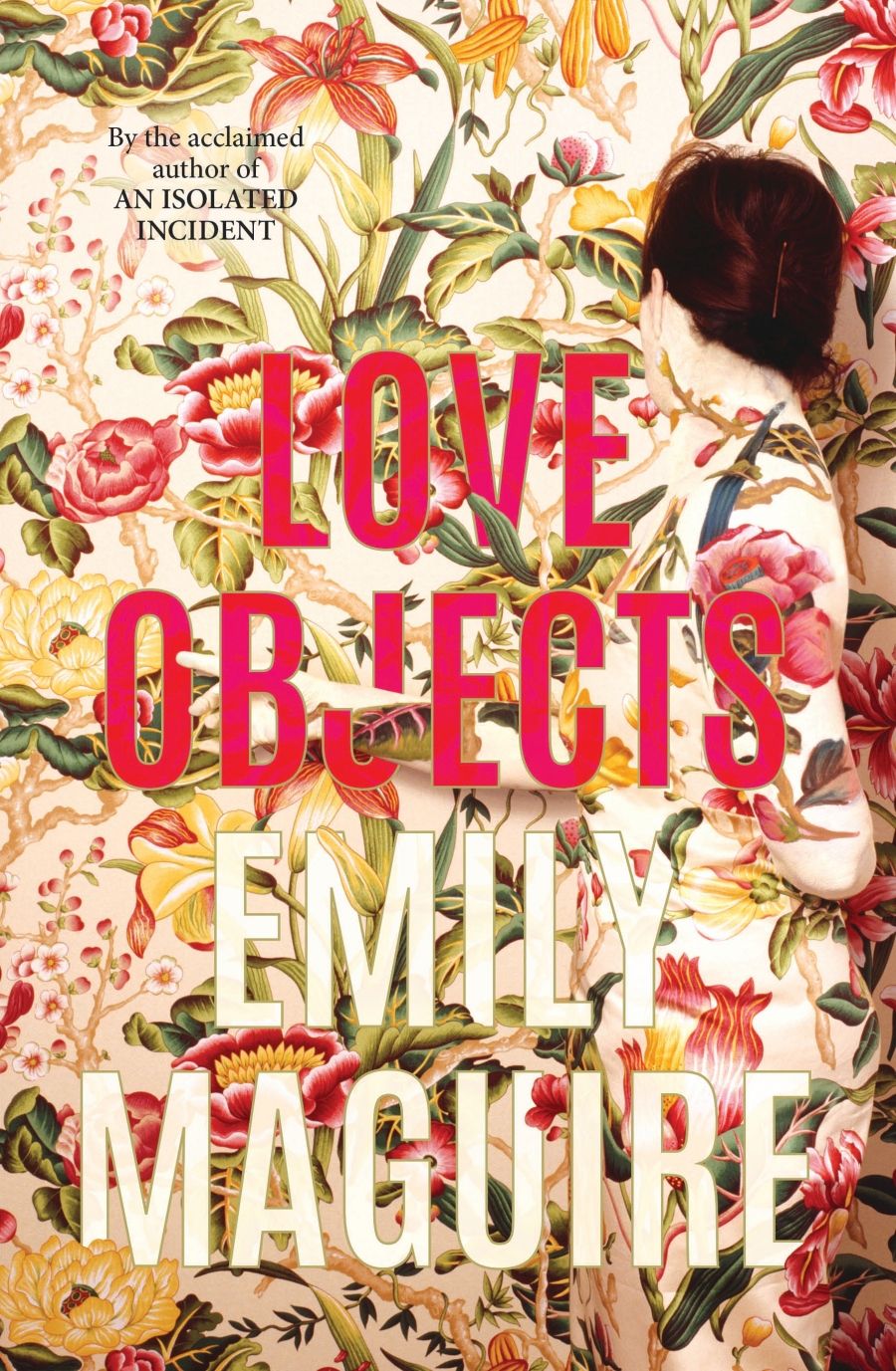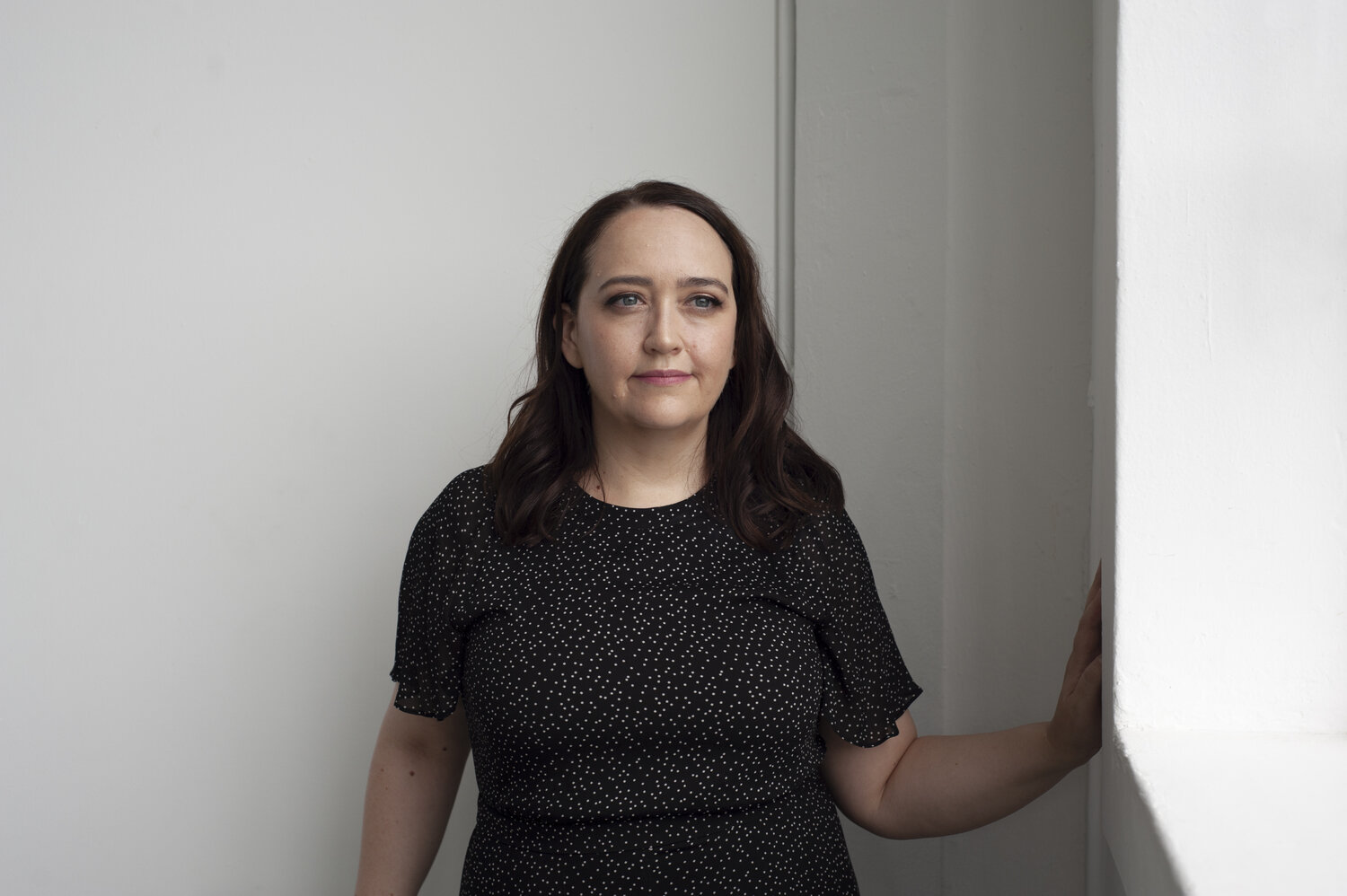
- Free Article: No
- Contents Category: Fiction
- Review Article: Yes
- Article Title: Nic and Lena
- Article Subtitle: Emily Maguire’s new novel on class and care
- Online Only: No
- Custom Highlight Text:
At the core of Love Objects, Emily Maguire’s sixth novel, is a delicate exploration of the responsibility that comes with love and what it means to care for others in both the emotional and practical senses of the word. The book’s protagonist, Nic, is a caustic but kind-hearted woman, positioned, in many ways, so as to be overlooked by the world. Middle-aged, childless, and living alone in her childhood home, she works as a cashier in a low-end department store. She is the kind of woman who often becomes invisible in our society, so it seems fitting that she has an affinity for the forgotten and the overlooked.
- Article Hero Image (920px wide):

- Article Hero Image Caption: Emily Maguire (photograph by Sarah Wilson)
- Alt Tag (Article Hero Image): Emily Maguire (photograph by Sarah Wilson)
- Featured Image (400px * 250px):

- Alt Tag (Featured Image): Love Objects
- Book 1 Title: Love Objects
- Book 1 Biblio: Allen & Unwin, $32.99 pb, 400 pp
- Book 1 Readings Link: booktopia.kh4ffx.net/a1nvxW
We first meet Nic walking home from work and stopping to pick up ‘treasures’ – a poster from a telephone pole, a parking fine in its envelope, a handmade doll’s bonnet dropped in a park that ‘hurts her heart’ because of the care with which it has been sewn. Nic’s house is full of such objects, collected over many years. This hoarding, which she has managed to keep secret from her family, is the cause of the main conflict in the book. When Nic injures herself while trying to display a newfound treasure on her wall, the medical intervention this precipitates forces her family to come to terms with her disorder, and with their own wider histories of loss and trauma as well.
The most important character in this process, and the first person to come to Nic’s aid, is her young niece Lena, who has returned to Sydney to study after spending most of her teenage years in Queensland. Lena has been finding the transition to university difficult – living alone for the first time, she must balance her studies with the work she needs to do to pay for her accommodation and food – and she is also constantly made aware of the gaping class difference between herself and her classmates. Her best friend is a woman Lena was first drawn to because she mistook the woman’s shabby, second-hand clothes for a necessity rather than a deliberate fashion choice. Lena is also unable to meet on an equal footing the advances of Josh, a wealthy college boy who sits beside her in one of her lectures, or to understand the vagaries of the milieu in which he moves.
Class is a key concern in Love Objects, as it is in much of Maguire’s work; it is handled with a refreshing directness and honesty that is missing in so many literary depictions of people like Lena and Nic. There is nothing gratuitous in Maguire’s detailing of their circumstances or of their thinking about money and work; nor does it ever feel laboured. These are characters who are open about their aspirations and the lives they would like to live, as well as their incredulity at the sums of money other people take for granted. It takes Lena, for example, some time to realise that an Instagram photo of Josh on a horse isn’t ‘a show-off holiday shot’ but rather something normal (‘What was his life? God,’ she thinks, so unimaginable is this to her). Nic’s immediate response to hearing about a performance artist who publicly destroyed all his possessions is to consider the unfathomable cost of what he destroyed, and how cruel the waste feels to her, a person who will never own ‘a TV not from Kmart’.
When Nic is hospitalised, it falls to Lena and her brother Will to clear out Nic’s house, which has been deemed unsafe by the social worker assigned to her case. Will has been largely absent from Lena’s life (and almost entirely absent from Nic’s) since a stint in jail as a seventeen-year-old. His presence in the book unsettles the close perspectives of Lena and Nic through the book has so far been told and complicates much of what the reader knows about them. It is Will who is best able to look directly at the family’s long history of broken homes and marriages, premature death, and trauma; and he who is able to properly understand Nic’s condition as an illness. Maguire is sensitive in her handling of Nic’s illness – it is linked to Nic’s empathy, her sense of the interconnectedness of things, but it is also allowed to be complex and not quite fathomable. At the same time, it drives some of Nic’s worst behaviour as she rails against her family’s attempts to help her. Nic’s illness is resolved a bit too neatly towards the end – largely because of the narrative pressures at work in the novel – but this is mostly conspicuous because of the lightness of Maguire’s narrative touch across the rest of the book.
Love Objects is a work of great heart, one that pays respectful attention to the interior lives of people so often missing from our literature. It explores many of the themes common in Maguire’s work – class, gender, emerging sexuality, the varying forms of violence and power – but also in the idea of familial love and duty, and what it is that we owe those we love. Love Objects is a work that’s startling for its compassion and the complexity with which it examines the responsibilities and histories that bind us together – even when these things are difficult or full of pain.


Comments powered by CComment